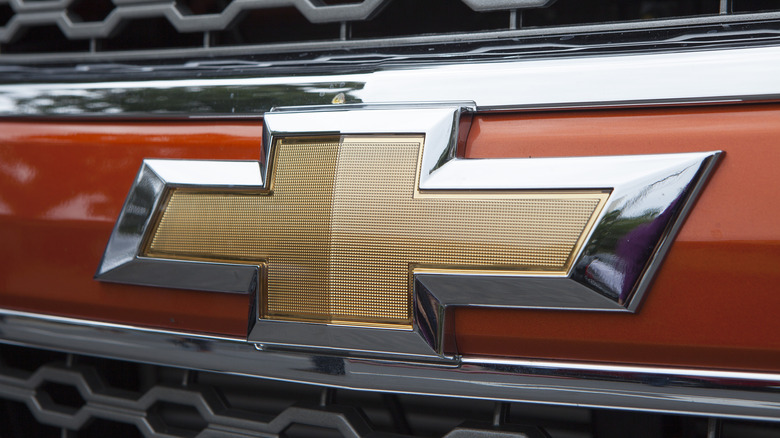Unless you’re a real grease monkey or a die-hard fan of Chevrolet cars, you may not know that the now-famous logo for the American car brand is actually referred to as a “bowtie.” Others call it a cross. Whatever the shape, how the automaker adopted this particular symbol still remains a mystery worthy of a Sherlock Holmes novel.
There are a handful of prevailing theories, each with its own reputable source to back them up. But let’s start with what is known. The emblem — that may or may not be a bowtie — was first introduced by Chevy’s co-founder, William Crapo Durant, in late 1913, when the company unveiled the 1914 models of the Chevrolet H-2 Royal Mail and the H-4 Baby Grand.
But the backstory of Durant getting the Chevrolet company rolling is replete with intrigue. In the early days of the American car industry, approximately forty-five companies were vying for customer business. It was a tricky industry, and most automakers only sold a handful of cars annually. Many were unscrupulous and operated under the “manufacturing gambling” business model where they would take a down payment and then summarily close up shop without ever building the vehicle.
Industrialist Benjamin Briscoe wanted to change the industry’s direction and instead build consumer confidence (via History). His plan involved putting the smaller and weaker companies out of business while incorporating the more prominent and dependable ones under one roof. Durant liked this idea and launched General Motors in 1908. A few years later, financial troubles forcred the board of GM to give Durant the boot, and bankers took over the company. Undeterred, Durant got right back into the driver’s seat, and, with the help of former race car driver Louis Chevrolet, went on to found the Chevrolet Motor Company in 1911.
The logo that was made between soup and fried chicken?
So what gave rise to Chevy’s ubiquitous bowtie theories?
Possibly the most “reliable” theory comes from the pages of a 1961 book called “The Chevrolet Story,” which was published by the company and released during its 50th anniversary. It states that during a trip to Paris, Durant saw some wallpaper at the hotel he was staying at and became so transfixed by its design that he tore off a piece and brought it Stateside with him. Durant believed it would make a good emblem for the car (via the GM Newsroom).
The oldest and perhaps most dubious theory might be from Durant’s own daughter, Margery. In her 1929 memoir called “My Father,” she recalled that her dad loved to sketch designs at the family dinner table and claims that the enigmatic emblem was drawn at dinner one evening between the appetizer and dinner courses.
Was Chevy’s bowtie emblem inspired by… tiny coal?
A “Newspaper Theory” sprang forth when an old interview with Durant’s widow Catherine was discovered. During it, she stated that in 1912, the family went on a vacation to Hot Springs, Virginia. During that time, Durant saw a design in a newspaper and believed it would be a good logo for Chevrolet.
This bit of family history then led to “The Coalettes Theory.” Taking the information from Catherine’s interview, Ken Kaufmann, historian and editor of “The Chevrolet Review,” began combing the Internet and digging through archives (via Chevrolet). During his search, he found an advertisement in a November 12, 1911, edition of an Atlanta paper called “The Constitution” that struck him. The Southern Compressed Coal Company was selling small, charcoal brick fuel products called “Coalettes” (little coal). The ad featured a slanted bowtie shape that is reminiscent of what would become the iconic Chevy emblem. Is it possible that during their trip to Virginia a year later, Durant saw this ad in the very newspaper his wife mentioned? Perhaps.
If all those theories weren’t enough, there is one last possibility. Louis Chevrolet was born in Switzerland. The “bowtie” might be a tweak of and a nod to the cross found on the Swiss flag (via GM Pressroom).
We’ll probably never actually know which theory is true. Still, we do know the first appearance of the Chevy “bowtie” appeared in the October 2, 1913 edition of “The Washington Post” and had “Look for this nameplate” above the now iconic symbol. At the ripe old age of nearly 110 … this “bowtie” still looks dapper.
Source link



